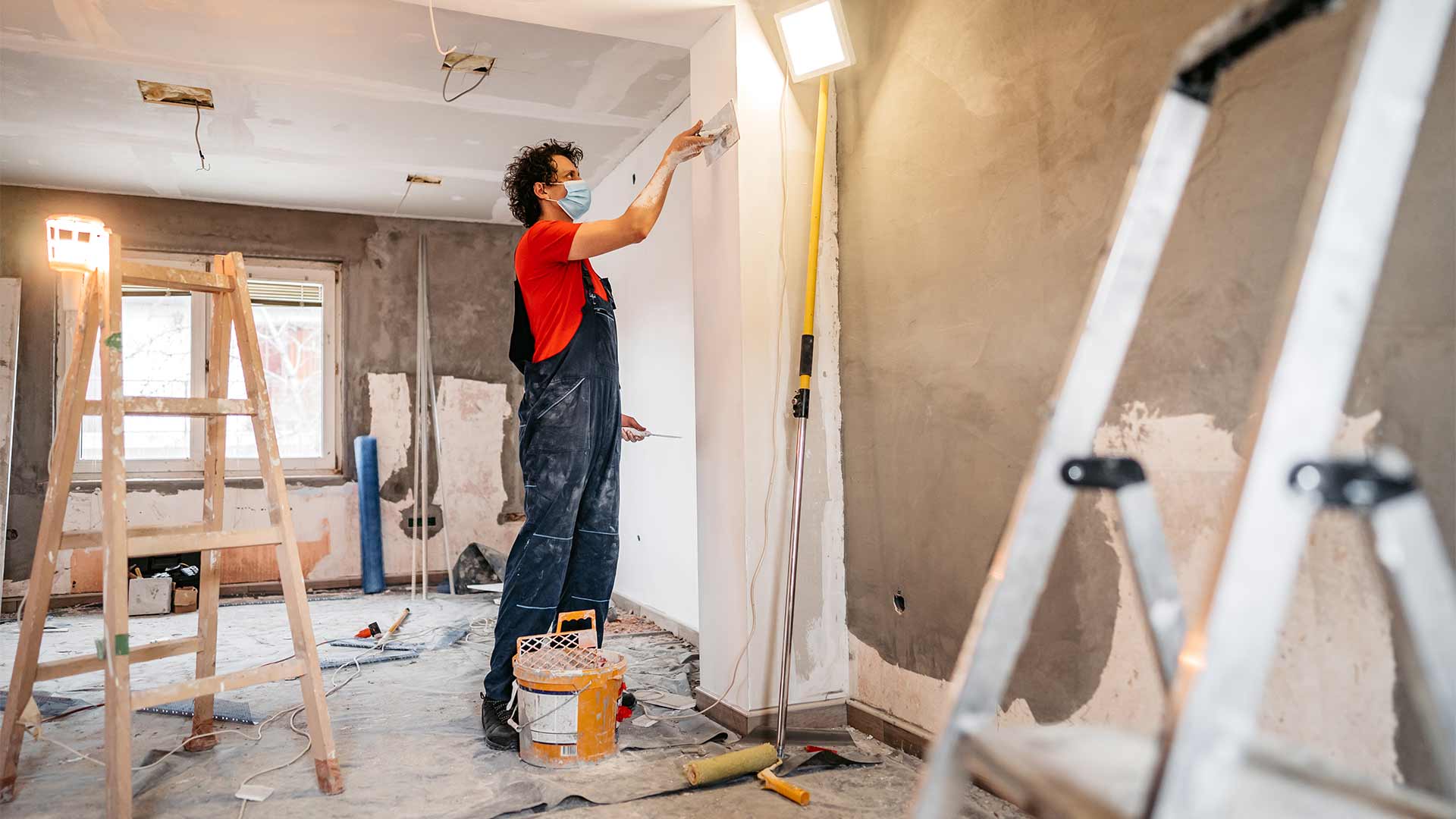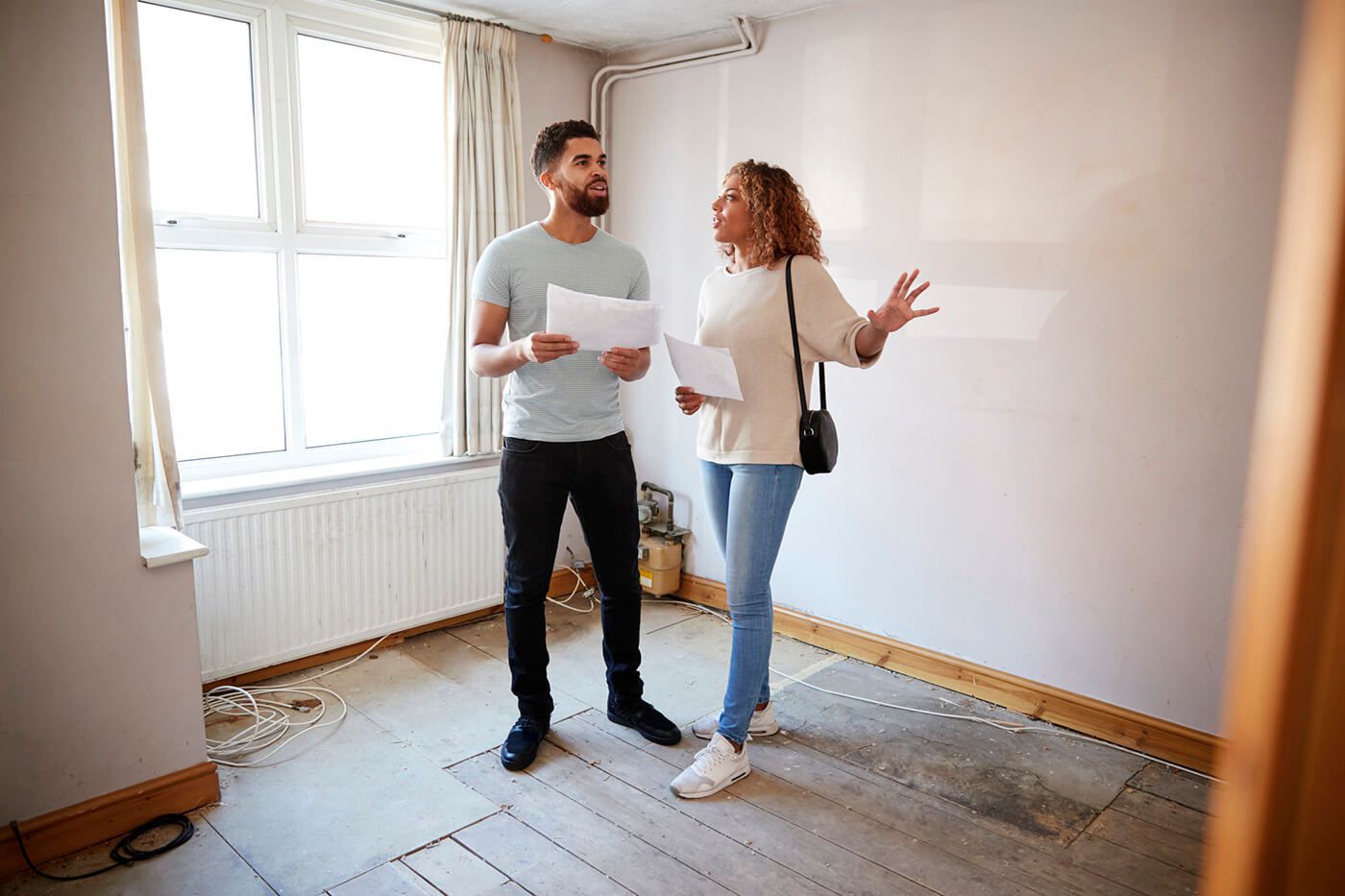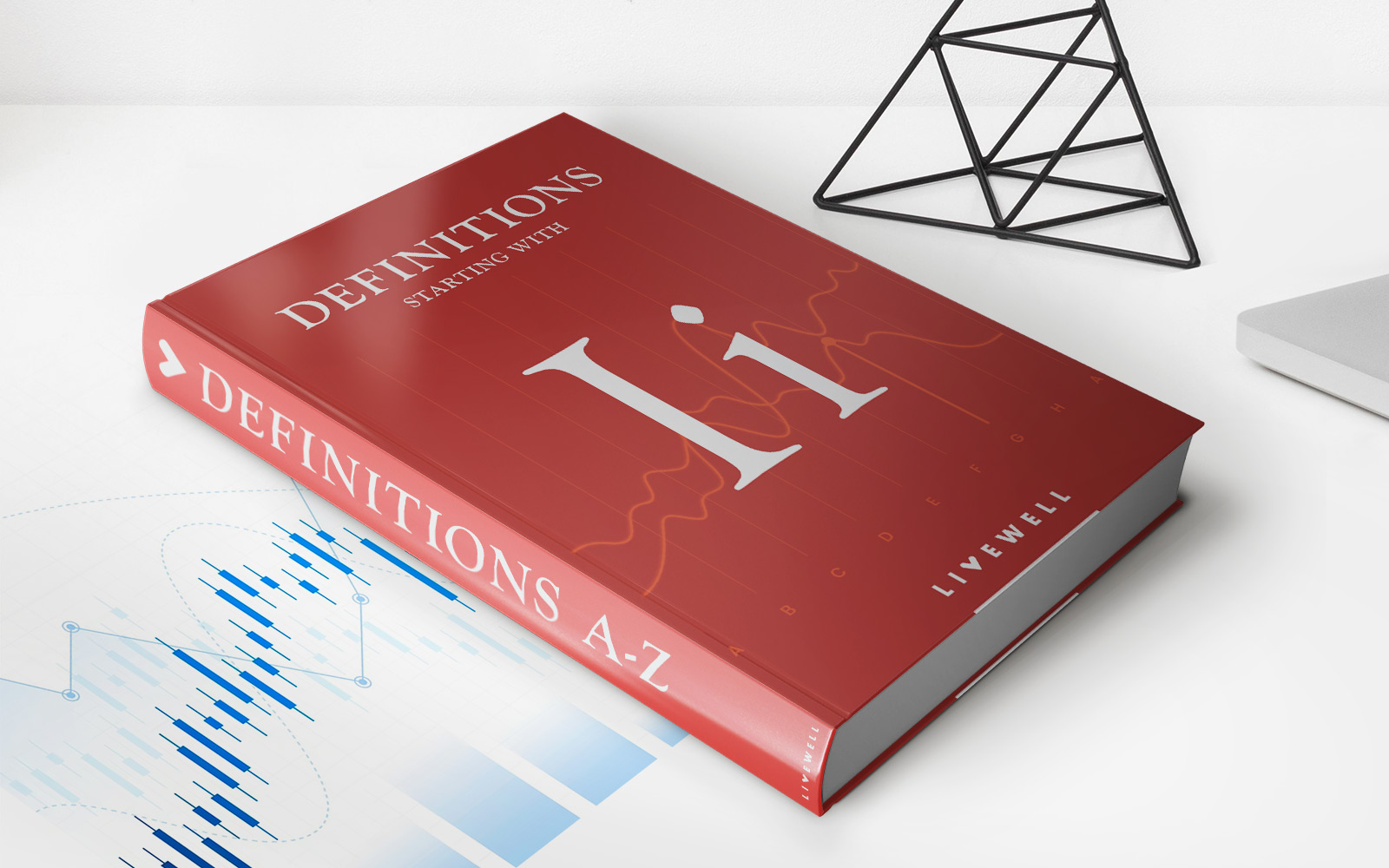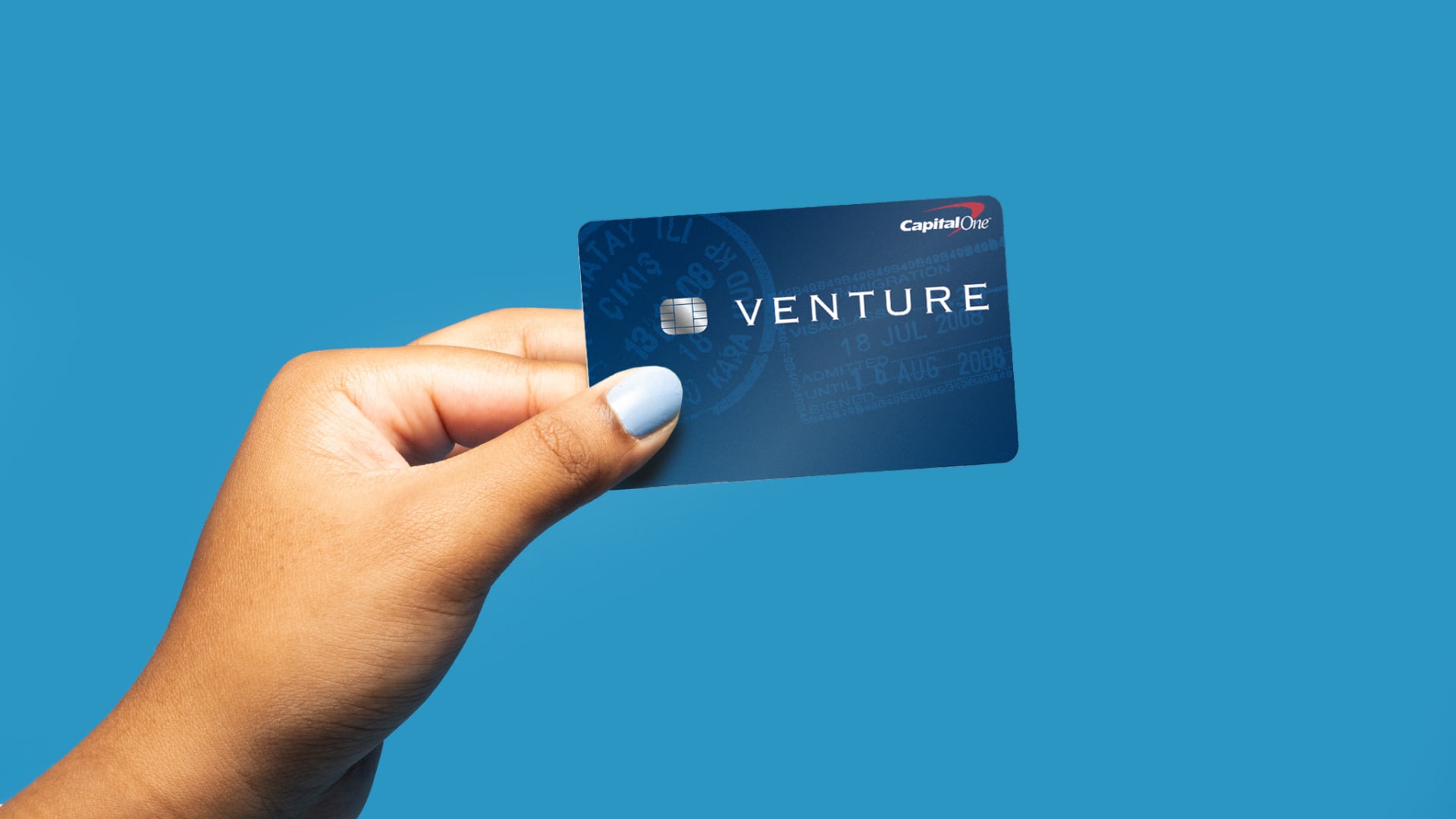

Finance
How To Buy A House In Florida With Bad Credit
Modified: February 21, 2024
Discover how you can finance your dream home in Florida, even with bad credit. Learn the step-by-step process to buying a house and start living your best life!
(Many of the links in this article redirect to a specific reviewed product. Your purchase of these products through affiliate links helps to generate commission for LiveWell, at no extra cost. Learn more)
Table of Contents
- Introduction
- Understanding Credit Scores
- Assessing Your Credit Situation
- Researching Loan Options for Bad Credit
- Improving Your Credit Score
- Finding the Right Lender
- Exploring Down Payment Assistance Programs
- Negotiating the Purchase Agreement
- Securing a Mortgage with Bad Credit
- Completing the Homebuying Process
- Conclusion
Introduction
Buying a house is an exciting milestone in life. However, if you have bad credit, you may feel discouraged or uncertain about your ability to secure a mortgage. Fortunately, buying a house in Florida with bad credit is not impossible. With the right knowledge and strategies, you can navigate the homebuying process and achieve your dream of homeownership.
Florida offers a wide range of housing options, from vibrant urban areas to serene coastal communities, making it an attractive location for prospective homebuyers. While a low credit score can present challenges, it’s important to remember that lenders consider multiple factors when evaluating loan applications. While creditworthiness is an essential aspect, it’s not the sole criterion for approval.
In this article, we will guide you through the steps to buy a house in Florida with bad credit. By understanding credit scores, assessing your credit situation, researching loan options for bad credit, improving your credit score, finding the right lender, exploring down payment assistance programs, negotiating the purchase agreement, securing a mortgage with bad credit, and completing the homebuying process, you’ll be equipped with the knowledge and tools necessary to make your homeownership dreams a reality.
While it’s true that bad credit can make the homebuying process more challenging, it’s not an insurmountable obstacle. By following the strategies outlined in this article, you can improve your chances of successfully purchasing a house in Florida, even with bad credit. Remember, it’s essential to be patient, persistent, and proactive when seeking a mortgage, as these qualities can greatly increase your chances of finding a lender willing to work with you.
So, whether you’re a first-time homebuyer or looking to invest in property in Florida, don’t let bad credit hold you back. With determination, education, and proper planning, you can achieve your goal of buying a house in Florida, even with less than perfect credit. Let’s dive into the details and explore how you can make your dream of homeownership a reality!
Understanding Credit Scores
Before delving into the process of buying a house in Florida with bad credit, it’s important to understand the significance of credit scores. Your credit score is a numerical representation of your creditworthiness, based on factors such as your payment history, outstanding debts, length of credit history, and new credit inquiries. Lenders use this score to assess your risk as a borrower and determine the interest rates and loan terms they are willing to offer.
Credit scores generally range from 300 to 850, with higher scores indicating greater creditworthiness. If your credit score is below 620, it is considered “bad” or “subprime.” While having bad credit can make it more challenging to secure a mortgage, it doesn’t mean you cannot become a homeowner.
When applying for a mortgage with bad credit, lenders may look beyond your credit score to assess your overall financial situation. They may consider your employment history, income, and assets to determine your ability to make the monthly mortgage payments. It’s important to be honest and transparent about your financial circumstances when discussing loan options with lenders.
Additionally, it’s crucial to understand that different types of loans have varying credit score requirements. For example, conventional loans typically have stricter credit score requirements compared to government-backed loans such as FHA (Federal Housing Administration) loans. Researching loan options tailored for individuals with bad credit is a key step in the homebuying process.
While bad credit can make it more difficult to secure a mortgage, it’s important to remember that your credit score is not fixed. It can be improved over time with responsible financial habits. Taking steps to rebuild and improve your credit will not only increase your chances of getting approved for a mortgage but also enable you to secure better loan terms and interest rates.
In the following sections, we will discuss strategies to assess your credit situation, research loan options for bad credit, and improve your credit score. By taking proactive measures, you can improve your financial standing and increase your chances of buying a house in Florida, even with bad credit.
Assessing Your Credit Situation
Assessing your credit situation is a crucial step when buying a house in Florida with bad credit. It involves understanding the factors that contribute to your low credit score and determining the best course of action to improve it. Here are some important steps to take:
1. Obtain a Credit Report: Start by obtaining a copy of your credit report from each of the three major credit bureaus – Equifax, Experian, and TransUnion. Review the reports carefully for any errors, inaccuracies, or fraudulent activities. If you find any discrepancies, promptly dispute them with the credit bureaus to have them corrected.
2. Analyze Your Credit Score: Look closely at your credit score and understand the specific areas where improvement is needed. Is it due to missed payments, high credit card balances, or a lack of credit history? Identifying the factors impacting your credit score will help you prioritize which areas need the most attention.
3. Evaluate Debt-to-Income Ratio: Your debt-to-income ratio is an important indicator of your financial health. Calculate this ratio by dividing your total monthly debt payments by your gross monthly income. Lenders typically prefer borrowers with a low debt-to-income ratio. If yours is high, consider paying off existing debts or exploring debt consolidation options.
4. Assess Payment History: Timely payments play a significant role in improving your credit score. Evaluate your payment history and look for any late payments or delinquencies. If you have any outstanding debts, focus on bringing them up to date and making consistent, on-time payments moving forward.
5. Examine Credit Utilization: Credit utilization refers to the amount of credit you are using compared to the total credit available to you. High utilization can negatively impact your credit score. Aim to keep your credit utilization below 30% of your total available credit. Consider paying down balances on your credit cards to reduce credit utilization.
6. Understand Negative Accounts: Identify any negative accounts, such as collections or charge-offs, on your credit report. These accounts can significantly impact your credit score. Develop a plan to address these accounts, such as negotiating settlements or setting up payment arrangements.
7. Develop a Budget: Creating a budget is crucial when trying to improve your credit situation. Evaluate your income and expenses to determine where you can cut back and allocate more funds towards paying off debts and improving your credit.
By thoroughly assessing your credit situation, you can gain a clearer understanding of the areas that require attention. This will help you develop a targeted plan to improve your credit score and increase your chances of securing a mortgage with better terms and interest rates. In the next section, we will discuss researching loan options suitable for individuals with bad credit.
Researching Loan Options for Bad Credit
When buying a house in Florida with bad credit, it’s essential to explore loan options specifically designed for individuals with less-than-perfect credit. While traditional lenders may have stricter requirements, there are alternative options available that can help you secure financing. Here are some loan options to consider:
1. FHA Loans: FHA loans are government-backed loans that are more lenient when it comes to credit requirements. The Federal Housing Administration insures these loans, enabling lenders to offer more favorable terms to borrowers with lower credit scores. FHA loans typically require a minimum credit score of 580, making them an attractive option for homebuyers with bad credit.
2. VA Loans: If you are a veteran, active-duty service member, or eligible surviving spouse, you may qualify for a VA loan. These loans are guaranteed by the U.S. Department of Veterans Affairs and often have more flexible credit requirements. VA loans can be a great option for eligible individuals with bad credit.
3. USDA Loans: USDA loans are backed by the U.S. Department of Agriculture and are designed to help individuals in rural areas purchase homes. These loans generally have lower credit score requirements and offer subsidies for low-income borrowers. If you are looking to buy a home in a qualifying rural area in Florida, a USDA loan could be a viable option.
4. Subprime Mortgages: Subprime mortgages are specifically tailored for borrowers with bad credit. These loans often come with higher interest rates and stricter terms, but they can provide a pathway to homeownership for individuals who may not qualify for traditional mortgages. It’s important to carefully review the terms and conditions of subprime mortgages and consider the long-term financial implications.
5. Non-Traditional Lenders: Non-traditional lenders, such as online mortgage lenders and community banks, may be more willing to work with borrowers with bad credit. These lenders often consider factors beyond credit scores, such as employment history and income stability, when evaluating loan applications. Research non-traditional lenders in Florida and compare their loan offerings to find the best fit for your needs.
As you research loan options, it’s crucial to carefully consider the terms, interest rates, and potential fees associated with each option. It may be beneficial to consult with a mortgage broker or financial advisor who specializes in helping individuals with bad credit find suitable loan options.
Remember to exercise caution and be wary of predatory lenders or scams targeting individuals with bad credit. Always verify the legitimacy of any lender or loan offer, and never agree to terms that seem unreasonable or suspicious.
By exploring these loan options and understanding the specific requirements and nuances of each, you can increase your chances of finding a mortgage that suits your needs and helps you achieve your goal of buying a house in Florida, even with bad credit.
Improving Your Credit Score
Improving your credit score is a crucial step when buying a house in Florida with bad credit. While it takes time and effort, implementing healthy financial habits can help you rebuild your creditworthiness. Here are some strategies to consider:
1. Pay Bills on Time: Consistently making on-time payments is one of the most effective ways to boost your credit score. Set up payment reminders or automatic payments to ensure you never miss a due date. Paying bills on time demonstrates responsible financial behavior to lenders.
2. Reduce Debt: High credit card balances can negatively impact your credit score. Work on paying down your debts, starting with the accounts carrying the highest interest rates. Aim to keep your credit utilization ratio below 30% by reducing outstanding credit card balances.
3. Increase Credit Limits: Contact your credit card issuers and request a credit limit increase. This can help lower your credit utilization ratio and improve your credit score, as long as you don’t increase your spending to match the higher limit. Use the increase responsibly and continue to make timely payments.
4. Build Positive Credit History: If you have limited credit history or damaged credit, building positive credit can help improve your overall score. Consider getting a secured credit card or becoming an authorized user on someone else’s credit card to establish or rebuild your credit history. Make small charges and pay them off in full every month.
5. Resolve Outstanding Accounts: If you have any outstanding accounts in collections, work on resolving them. Contact creditors or collection agencies to set up payment plans or negotiate settlements. Getting these accounts settled or paid off can have a positive impact on your credit score.
6. Avoid Opening New Credit Accounts: While it may be tempting to open new credit accounts to improve your credit mix, doing so can temporarily lower your credit score. Focus on managing and improving your existing accounts, rather than opening new ones.
7. Monitor Your Credit: Regularly monitor your credit reports to ensure accuracy and identify any potential issues. Take advantage of free credit monitoring services and review your reports for errors or fraudulent activities. Reporting and resolving any discrepancies promptly is crucial for maintaining an accurate credit profile.
Improving your credit score takes time, patience, and discipline. While it may not happen overnight, the efforts you put into rebuilding your credit will pay off in the long run. By implementing these strategies, you can gradually improve your creditworthiness and increase your chances of securing a mortgage with more favorable terms and interest rates.
Remember, it’s important to be realistic with your expectations. Building a strong credit score is a journey that requires consistent effort and responsible financial habits. Stay committed, and over time, you’ll see the positive impact on your credit profile.
Finding the Right Lender
When buying a house in Florida with bad credit, finding the right lender is crucial. Not all lenders are willing to work with borrowers who have low credit scores, so it’s important to do your research and identify lenders who specialize in helping individuals with bad credit. Here are some steps to find the right lender:
1. Research Lenders: Start by researching lenders that offer mortgage loans to individuals with bad credit. Look for lenders who have experience working with borrowers in similar situations. Online research, customer reviews, and recommendations from friends or family can help you identify potential lenders.
2. Check Credit Score Requirements: Review the credit score requirements of different lenders. Some lenders may have minimum credit score thresholds that you need to meet to qualify for a loan. Focus on lenders who have more lenient credit score requirements or specialize in bad credit mortgages.
3. Seek Recommendations: Ask for recommendations from friends, family, or real estate professionals who have experience working with borrowers with bad credit. They may be able to provide insights into lenders who are willing to be flexible and work with borrowers in similar situations.
4. Contact Multiple Lenders: Reach out to multiple lenders to discuss your situation and loan options. Be upfront about your bad credit and ask for their expertise in finding appropriate loan programs. Pay attention to their responsiveness, willingness to listen, and their ability to explain the loan process clearly.
5. Compare Loan Offers: Once you’ve gathered loan offers from different lenders, compare them carefully. Look at the interest rates, loan terms, and any additional fees or charges. Consider the overall cost of the loan as well as the monthly payments when evaluating your options.
6. Evaluate Customer Service: Good customer service is essential when working with a lender, especially if you have bad credit. Evaluate the level of customer service each lender provides. Are they responsive to your questions and concerns? Do they make an effort to understand your unique situation and offer personalized guidance?
7. Consider Local Credit Unions: Local credit unions often have a more community-focused approach to lending and may be more willing to work with borrowers with bad credit. Explore credit unions in your area and inquire about their mortgage loan programs.
Remember, finding the right lender is about more than just securing a mortgage. It’s about finding a partner who understands your situation and is committed to helping you achieve your homeownership goals. Take the time to research, compare, and evaluate lenders to ensure you find the right fit for your needs.
In the next section, we will discuss exploring down payment assistance programs that can help make buying a house in Florida more affordable, even with bad credit.
Exploring Down Payment Assistance Programs
When buying a house in Florida with bad credit, the down payment can be a significant financial hurdle. However, there are various down payment assistance programs available that can help make homeownership more attainable. Here are some options to consider:
1. State and Local Programs: Many states and local governments offer down payment assistance programs specifically designed to help first-time homebuyers and those with low to moderate incomes. These programs may provide grants, low-interest loans, or deferred payment loans to assist with the down payment and closing costs. Research the Florida Housing Finance Corporation and local housing authorities to explore the options available in your area.
2. Non-Profit Organizations: Non-profit organizations often provide down payment assistance programs to help individuals and families achieve homeownership. These programs may offer grants or low-interest loans that can be used for the down payment and closing costs. Conduct research to identify non-profit organizations in Florida that offer down payment assistance.
3. Federal Programs: The U.S. Department of Housing and Urban Development (HUD) offers various programs that provide down payment assistance to homebuyers, such as the Good Neighbor Next Door program and the Indian Home Loan Guarantee Program. Explore the HUD website to learn about the programs and eligibility criteria.
4. Employer Assistance: Some employers offer down payment assistance as part of their employee benefits package. Check with your employer to see if they have any programs or partnerships in place to assist employees with homeownership.
5. Builder Incentives: Some home builders offer incentives and assistance programs to help buyers with their down payment. These incentives can include special financing options, contribution towards closing costs, or even direct down payment assistance. Research builders in your desired area to see if they offer any programs that can help you with your down payment.
6. Family and Friends: Don’t overlook the possibility of financial assistance from family or friends. They may be willing to gift you funds to use towards your down payment. However, be mindful of the guidelines and requirements set by lenders regarding gifted funds and ensure they are properly documented and disclosed.
It’s important to note that each down payment assistance program may have specific eligibility criteria and requirements. Researching and understanding these programs will help you determine which ones you qualify for and how they can assist you in achieving homeownership.
When exploring down payment assistance programs, be sure to consider any potential implications or obligations associated with utilizing these programs. Some programs may require you to live in the home for a certain period or have specific repayment terms if you sell the property. Evaluate the terms and conditions before committing to a down payment assistance program.
By exploring these down payment assistance options, you can ease the financial burden of buying a house in Florida and make homeownership more accessible, even with bad credit. In the next section, we will discuss negotiating the purchase agreement to ensure the best possible terms for your home purchase.
Negotiating the Purchase Agreement
Once you’ve found a home that meets your needs and have secured financing options, the next step is negotiating the purchase agreement. Negotiating the purchase agreement is an important step in the homebuying process, especially when buying a house in Florida with bad credit. Here are some tips to help you navigate this stage:
1. Work with a Real Estate Agent: Consider working with a qualified real estate agent who has experience in negotiating purchase agreements. They can provide valuable guidance, help you understand market conditions, and ensure that your best interests are represented in the negotiation process.
2. Research Comparable Sales: Before entering into negotiations, research comparable sales in the area to get an accurate idea of the property’s market value. This information will strengthen your position during negotiations and help you determine a fair purchase price.
3. Identify Key Terms: Identify key terms that are important to you, such as the purchase price, closing date, repairs or contingencies, and any additional items you would like to negotiate, such as appliances or furniture. Prioritize these terms, as you may need to be flexible on some points to reach an agreement.
4. Be Prepared to Compromise: Negotiations involve give and take. Be prepared to compromise on certain terms to reach a mutually acceptable agreement. Being flexible and open to negotiation will improve your chances of successfully navigating this phase.
5. Request Seller Concessions: If you’re concerned about upfront costs or repairs, consider requesting seller concessions. These concessions may include the seller covering a portion of your closing costs or making necessary repairs before the sale. Seller concessions can help alleviate some financial burden and make the purchase more affordable.
6. Leverage Your Financing Pre-Approval: If you have a pre-approval for a mortgage, use it as a negotiating tool. A pre-approval shows sellers that you are a serious buyer and have already taken steps towards securing financing. This can give you an advantage during negotiations.
7. Seek Professional Advice: If necessary, consult with a real estate attorney who can review the purchase agreement and provide legal advice. They can ensure that the agreement protects your interests and highlight any potential issues before you commit to the purchase.
Remember, effective negotiation requires good communication and a willingness to find a middle ground. Stay respectful and professional throughout the negotiation process to maintain a positive relationship with the seller. By negotiating a favorable purchase agreement, you can secure a home that meets your needs and aligns with your financial circumstances.
Once the purchase agreement is negotiated and accepted, it’s crucial to secure a mortgage with bad credit. In the next section, we will discuss strategies to help you secure a mortgage with less-than-perfect credit.
Securing a Mortgage with Bad Credit
Securing a mortgage with bad credit can be challenging, but it is not impossible. While traditional lenders may have stricter requirements, there are steps you can take to improve your chances of obtaining a mortgage, even with less-than-perfect credit. Here are some strategies to consider:
1. Improve Your Credit Score: Before applying for a mortgage, take steps to improve your credit score. This can include paying off outstanding debts, making timely payments, and reducing your credit utilization. Improving your credit score will not only increase your eligibility for a mortgage but also improve the terms and interest rates you may be offered.
2. Save for a Larger Down Payment: Increasing your down payment can help offset the impact of poor credit. Lenders may be more willing to work with you if you can provide a larger down payment, as it reduces their risk. Saving diligently and aiming for a higher down payment can make you a more attractive borrower.
3. Gather Strong Financial Documentation: When applying for a mortgage, it’s important to provide strong financial documentation to demonstrate your ability to repay the loan. This can include pay stubs, tax returns, bank statements, and any other documentation that showcases your financial stability and income. Having a stable job history and a higher income can help offset the negative impact of bad credit.
4. Consider FHA or VA Loans: FHA loans and VA loans are government-backed loan options that are generally more forgiving towards borrowers with bad credit. FHA loans are insured by the Federal Housing Administration, while VA loans are available to veterans, active-duty military personnel, and eligible surviving spouses. These loans often have more flexible credit score requirements, making them a viable option for individuals with bad credit.
5. Seek Alternative Lenders: Explore alternative lenders who are more willing to work with borrowers with bad credit. These lenders may consider other factors such as employment history and income stability rather than solely focusing on credit scores. Do thorough research to identify lenders who specialize in bad credit mortgages and compare their terms and interest rates.
6. Get a Cosigner: If your credit is extremely poor, you may consider enlisting the help of a cosigner with strong credit. A cosigner is someone who agrees to take responsibility for the loan if you default on payments. Having a cosigner with excellent credit can improve your chances of getting approved for a mortgage and may even lead to better loan terms.
7. Work with a Mortgage Broker: A mortgage broker can be a valuable resource when trying to secure a mortgage with bad credit. They have access to a wide network of lenders and can help match you with a lender who is willing to work with your credit situation. A mortgage broker can also provide guidance and assist you throughout the application process.
Remember, securing a mortgage with bad credit may involve some additional hurdles, but it is not impossible. By taking proactive steps to improve your credit, exploring alternative lenders, and considering government-backed loan programs, you can increase your chances of obtaining a mortgage and achieving your dream of homeownership.
In the final section, we will discuss the remaining steps to complete the homebuying process in Florida, even with bad credit.
Completing the Homebuying Process
Completing the homebuying process in Florida, even with bad credit, involves several key steps that are essential to successfully closing the deal. Here’s an overview of what you can expect:
1. Finalize the Mortgage: With a pre-approval in hand, work closely with your chosen lender to finalize the mortgage application. Provide any additional documentation or information they may require and stay in communication with them throughout the process.
2. Schedule a Home Inspection: Hire a professional home inspector to thoroughly examine the property for any underlying issues or potential problems. The inspection report will provide insights into the condition of the home and help you make an informed decision before proceeding with the purchase.
3. Conduct a Title Search: A title search is essential to ensure there are no existing liens or legal issues attached to the property. Engage a title company or attorney to conduct the search and ensure that the title is clear and transferable.
4. Secure Homeowner’s Insurance: Contact insurance companies to obtain quotes and secure homeowner’s insurance coverage for the property. Lenders typically require proof of insurance before approving a mortgage, so it’s important to have this in place.
5. Review Closing Documents: Carefully review all the closing documents, including the loan estimate, closing disclosure, and any other paperwork related to the sale. If you have any questions or concerns, seek clarification from your real estate agent or attorney.
6. Organize the Closing Funds: Prepare the necessary funds for closing, including the down payment, closing costs, and any other fees that may be required. Coordinate with your lender and/or closing agent to ensure the funds are available in the correct form and at the designated time.
7. Attend the Closing: On the day of the closing, you will meet with the seller, your real estate agent, and potentially a representative from the title company or attorney’s office. Review and sign all the necessary documents, pay any remaining closing costs, and receive the keys to your new home.
8. Complete Post-Closing Tasks: After the closing, there are still a few important tasks to complete. Change the locks on the property, update your address with relevant institutions, set up utilities, and ensure a smooth transition into your new home.
It’s important to note that throughout the entire homebuying process, it’s crucial to stay in close communication with your real estate agent, lender, and any other professionals involved. They can provide guidance, answer questions, and ensure a smooth transaction.
While buying a house in Florida with bad credit may present some challenges, with determination, patience, and the right strategies, it is entirely possible to overcome them. By following the steps outlined in this article, you can navigate the homebuying process and achieve your goal of homeownership, even with less-than-perfect credit.
Congratulations on taking the steps to become a homeowner in Florida! As you settle into your new home, continue to prioritize responsible financial habits and work towards improving your credit. Remember, homeownership is a long-term investment, and with time, dedication, and wise financial choices, you can strengthen your credit and enjoy the benefits of being a homeowner.
Conclusion
Buying a house in Florida with bad credit may present its challenges, but it is certainly not an unattainable goal. By understanding credit scores, assessing your credit situation, researching loan options, improving your credit, finding the right lender, exploring down payment assistance programs, negotiating the purchase agreement, securing a mortgage, and completing the homebuying process, you can overcome the obstacles and achieve homeownership.
Remember, the key to success lies in being proactive, patient, and persistent. Take the time to research your options, seek guidance from professionals, and work diligently to improve your creditworthiness. Utilize down payment assistance programs and explore alternative lenders who are more willing to work with borrowers with bad credit. Negotiating a favorable purchase agreement and completing all necessary steps in the homebuying process will bring you closer to your dream of owning a home in Florida.
Throughout this journey, it’s essential to remain realistic and have a clear understanding of your financial situation. Set realistic expectations, budget wisely, and be mindful of your long-term financial goals. While the process may have its ups and downs, remember that each hurdle brings you closer to achieving your dream of homeownership.
Lastly, enjoy the excitement and joy that comes with owning a home. Take pride in the space you have created for yourself and your loved ones. Homeownership is not just about financial investment; it is about creating a place where memories are made, dreams are nurtured, and a sense of stability and belonging is fostered.
Congratulations on your journey to buying a house in Florida with bad credit. With the right mindset, knowledge, and strategies, you can overcome the challenges and embark on this significant milestone in your life. Embrace the journey, embrace the possibilities, and make your dream of homeownership a reality.














